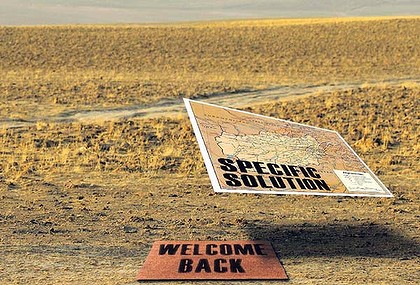Back to the danger zone
Phil Glendenning | January 19, 2011

IN HIS recent quarterly report on Afghanistan, UN Secretary-General Ban Ki-moon began his discussion of the security situation there with the simple statement: “During the reporting period, the number of security incidents was 66 per cent higher than during the same period in 2009.”
Last year was the most violent in Afghanistan since 2001, and most victims of the increased violence were civilians, especially women and children. A recent background briefing on Afghanistan from the office of the United Nations High Commissioner for Refugees includes a report from aid agencies titled Afghanistan: humanitarian situation likely to worsen in 2011.
Advertisement: Story continues below
Thus many within the non-government refugee and immigration sector were surprised by Monday’s announcement by Immigration Minister Chris Bowen of the signing of an agreement with the Afghanistan government that will permit the involuntary repatriation to Afghanistan of unsuccessful asylum seekers. It is cause for grave concern.
Bowen said the agreement would deter Afghans considering travelling to Australia. ”To dissuade people from risking their lives by joining people-smuggling ventures, it is important that Afghans found not to be owed protection by Australia are returned to Afghanistan,” he said.
Many Afghans have now been made vulnerable by this memorandum of understanding, including members of the persecuted Hazara ethnic minority and women who will be perceived as having departed from acceptable cultural norms.
The memorandum even explicitly lays out the groundwork for the deportation of separated and unaccompanied children back to the war zone that is Afghanistan.
This current memorandum has been countersigned by the Afghan government that has been singularly unable or unwilling to protect the civilian population.
Since 2001, Edmund Rice Centre studies have shown that when mistakes are made in returning people to unsafe situations, their lives are put at serious risk. Its research in Afghanistan has found that some returnees from Australia and their children were killed upon return and many today live with the well-founded fear of the very persecution they sought to escape.
Last June in Uruzgan province, where Australian Forces are most present, 11 Hazaras were decapitated. In late 2008, a repatriated asylum seeker, Tour Gul, who was given assurances of safety by the Australian government, was shot four times in the head by the Taliban.
Another returnee, Abdul Azmin Rajabi, saw his nine and six-year-old daughters Yalda and Rowna killed as a consequence of his being targeted four months after returning from detention in Nauru.
At some point we as a nation have to understand the reality that is war and that civilians will always try to escape from it. Think Vietnam, Bosnia, Somalia, Afghanistan. It is not enough to simply send our soldiers to fight and die. War has a human cost beyond borders.
The reality is, in the Edmund Rice Centre’s experience, the overwhelming majority of people flee their homelands at a time of war and crisis out of desperation rather than aspiration. They seek to avoid persecution that threatens them and their children rather than to come to countries such as Australia to seek a better life.
The UN Secretary-General reported in December: ”As the process of transition to full Afghan leadership and ownership advances, both government and [the] international community should be guided by realities rather than schedules.” Wanting things to improve does not improve them. Afghanistan is less safe now than 10 years ago, less safe now for civilians than in any year since 2001.
The facts reported by Secretary-General Moon speak for themselves: in Afghanistan ordinary civilians have continued to bear the brunt of intensified armed conflict as we have seen civilian casualties, including deaths and injuries, increase by 20 per cent in the first 10 months of 2010 compared with the same period in 2009.
Anti-government elements have continued to increase their use of improvised explosive devices to directly target civilians through abductions and assassinations. Indeed, assassinations reached unprecedented numbers in August last year, killings that mostly targeted civilians and police. This is not evidence of an improving situation.
Shadow immigration minister Scott Morrison pointed out at the time of the Christmas Island boat tragedy that the life of each of the asylum seekers on the boat was as precious as those of every Australian. So it is for those who have fled from Afghanistan. Unless their safety can be guaranteed in a deteriorating war zone, forced returns run the risk of repeating the sins of the Howard years.
Phil Glendenning is the director of the Edmund Rice Centre for Justice and Community Education. The centre conducts research into what happens to Australia’s rejected asylum seekers.